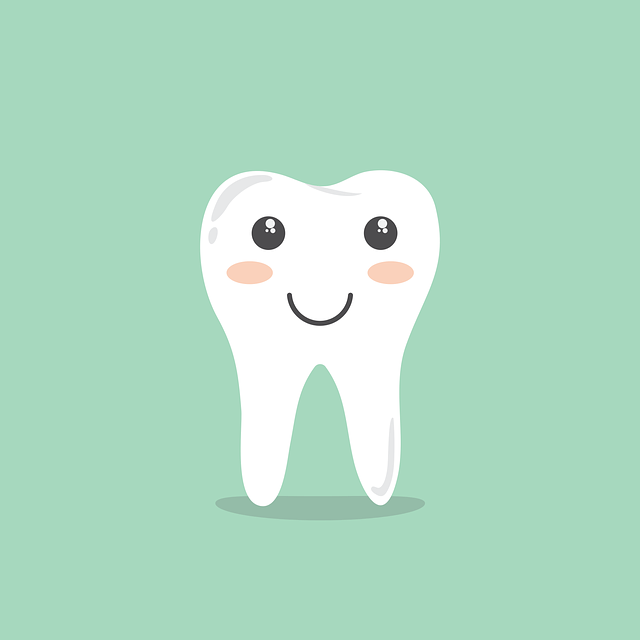Are you tired of feeling self-conscious about your translucent teeth? If so, you’re not alone. Many individuals find themselves longing for a brighter, more vibrant smile, but don’t necessarily want to resort to artificial treatments. Luckily, there are natural ways to address this common issue. In this article, we will explore the causes behind translucent teeth and provide you with valuable insights on how to fix them naturally. So, if you’re ready to uncover the secrets to a confident and radiant smile, keep reading.
1. Understanding Translucent Teeth: Causes, Symptoms, and Prevalence
Causes:
-
- Dental enamel erosion: Translucent teeth can occur when the enamel, the outer protective layer of the teeth, gradually wears away. This can be caused by excessive consumption of acidic foods and beverages or overbrushing.
- Genetic factors: Some individuals may be genetically predisposed to having translucent teeth. In such cases, the enamel may not develop properly, resulting in a translucent appearance.
- Tooth grinding: Habitual teeth grinding, also known as bruxism, can contribute to the wearing down of tooth enamel and the development of translucent teeth.
Symptoms:
-
- Thinner appearance: Translucent teeth often appear thinner due to the reduced opacity of the enamel.
- Increased sensitivity: As the protective enamel layer diminishes, individuals may experience heightened sensitivity to hot and cold temperatures.
- Yellowish hue: Translucent teeth can sometimes have a yellowish or grayish tint, as the inner layer of the tooth, known as dentin, becomes more visible.
Prevalence:
Though translucent teeth are not uncommon, the prevalence can vary among individuals. Factors such as genetics, lifestyle habits, and oral care practices can influence the likelihood of experiencing translucent teeth. While it may not be a cause for concern in some cases, individuals noticing increased tooth translucency should consult with a dental professional to assess the underlying cause and explore potential treatment options.
2. The Role of Enamel in Dental Health: How It Affects Tooth Transparency
Dental health is a complex matter, with various factors playing crucial roles in maintaining optimal oral hygiene. One such factor is the role of enamel in tooth transparency. Enamel, the outer layer of the tooth, plays a crucial role in protecting the underlying dentin and pulp from bacterial damage and decay. However, its role extends beyond the structural aspect, as it also influences tooth transparency.
Factors Affecting Tooth Transparency:
- Thickness of Enamel: The thickness of enamel greatly influences tooth transparency. Thicker enamel tends to be more opaque, resulting in reduced transparency.
- Mineralization of Enamel: Enamel that is well-mineralized appears more translucent, contributing to tooth transparency. Inadequate mineralization can lead to a decrease in enamel transparency.
- Surface Smoothness: A smooth enamel surface reflects light more efficiently, contributing to tooth transparency. Conversely, an uneven or rough enamel surface can cause light scattering and reduced transparency.
Understanding the role of enamel in tooth transparency is crucial for both dental professionals and individuals seeking to maintain optimal dental health. By considering the factors that affect tooth transparency, dental professionals can provide appropriate advice and treatments to enhance patients’ smiles. Similarly, individuals can take proactive steps, such as practicing good oral hygiene and seeking professional dental care, to ensure the health and transparency of their teeth.
3. Natural Remedies for Strengthening Tooth Enamel and Reducing Translucency
Tooth enamel is the hard, protective outer layer of the teeth. It is the strongest substance in the human body, but it can still become weakened and translucent over time due to factors such as poor oral hygiene, acidic foods and drinks, and enamel erosion caused by bacteria. However, there are natural remedies that can help strengthen tooth enamel and reduce translucency, promoting better oral health:
-
- Cut down on acidic foods and drinks: Consuming too many acidic substances can wear down tooth enamel over time. Limit your intake of soda, citrus fruits, vinegars, and other acidic foods and beverages.
- Increase calcium intake: Calcium is essential for strong teeth and enamel. Include calcium-rich foods in your diet, such as dairy products, leafy greens, beans, and almonds.
- Use fluoride toothpaste: Fluoride is known to strengthen tooth enamel and protect against tooth decay. Choose a toothpaste that contains fluoride and use it regularly.
- Avoid teeth grinding: Grinding or clenching your teeth can wear down the enamel. Consider using a mouthguard at night to prevent damage.
Other natural remedies that can help strengthen tooth enamel:
-
- Oil pulling: Swishing coconut oil or sesame oil in your mouth for a few minutes daily is believed to promote oral health and protect tooth enamel.
- Green tea: Drinking green tea has been associated with improved dental health. Its antioxidant properties can help protect tooth enamel from damage.
- Vitamin D: Adequate levels of vitamin D are crucial for strong teeth. Ensure you get enough sunlight exposure or consider taking a vitamin D supplement.
- Proper oral hygiene: Brush your teeth at least twice a day, floss daily, and visit your dentist regularly for cleanings. Good oral hygiene practices can support the health and strength of tooth enamel.
Ensuring a balanced diet is crucial for maintaining strong and healthy teeth. The food we consume not only affects our overall health but also plays a significant role in oral health. By including essential nutrients in our daily meals, we can promote the well-being of our teeth and gums. Here are some key nutrients that are vital for maintaining optimal dental health:
While these nutrients are essential for maintaining oral health, it is equally important to limit the intake of sugary and acidic foods and beverages that can harm the teeth. Incorporating a variety of nutrient-rich foods into your diet and practicing good oral hygiene, such as regular brushing and flossing, will help ensure a dazzling and healthy smile for years to come.
5. Effective Oral Hygiene Practices: Tips to Preserve Tooth Enamel Integrity
Preserving the integrity of tooth enamel is vital for maintaining good oral health. Here are some effective oral hygiene practices to help you protect your tooth enamel:
-
- Brush your teeth at least twice a day with a soft-bristled toothbrush and fluoride toothpaste. Brush gently using small, circular motions to remove plaque and food particles.
- Floss daily to clean between your teeth and remove plaque from areas that your toothbrush cannot reach. Be gentle and avoid snapping the floss against your gums to prevent any damage.
- Limit your consumption of acidic and sugary foods and beverages. Acidic substances erode tooth enamel, while sugars provide food for bacteria that cause dental decay. If you do consume such items, rinse your mouth with water afterwards.
- Drink plenty of water throughout the day to help neutralize acid in your mouth and maintain saliva production. Saliva helps protect tooth enamel by washing away bacteria and food particles.
Additionally, consider the following tips for preserving the integrity of your tooth enamel:
-
- Avoid brushing your teeth immediately after consuming acidic foods or beverages, as this can further weaken the enamel. Instead, wait at least 30 minutes to allow your saliva to neutralize the acid.
- Use a straw when consuming acidic and sugary beverages to minimize contact with your teeth.
- If you grind your teeth at night, consider wearing a mouthguard to protect your tooth enamel from excessive wear and tear.
- Visit your dentist regularly for check-ups and professional cleanings. They can provide personalized advice and identify any early signs of enamel erosion or dental issues.
Fluoride is a naturally occurring mineral that plays a crucial role in maintaining the health of our teeth. It offers several benefits that help enhance tooth enamel and reduce translucency, ultimately leading to stronger and more resilient teeth.
Enhancement of tooth enamel: One of the primary benefits of fluoride is its ability to enhance the tooth enamel, the outer protective layer of our teeth. When fluoride is present in the mouth, it gets absorbed into the enamel, making it more resistant to acid attacks from bacteria and acids produced by plaque. This process, known as remineralization, helps repair early stages of tooth decay and prevent the formation of cavities.
Reduction of translucency: Translucency, or the visible transparency of teeth, can deteriorate the aesthetics of a smile. Fluoride helps address this issue by reducing the translucency of teeth, resulting in a more opaque appearance. By strengthening the enamel and preventing enamel erosion, fluoride minimizes the transparency of the tooth structure, giving the teeth a healthier and brighter appearance.
Translucent teeth can be a cause for concern, as they indicate a loss of enamel and can make your teeth appear dull and prone to damage. To maintain the health and appearance of your teeth, it’s important to avoid certain habits that contribute to translucent teeth. By staying away from these habits, you can help preserve your enamel and keep your teeth strong.
1. Acidic foods and beverages: Consuming excessive amounts of acidic foods and beverages can erode the protective layer of enamel on your teeth. Limit your intake of acidic foods like citrus fruits, tomatoes, and vinegar-based dressings. Similarly, reduce your consumption of acidic drinks such as sodas, sports drinks, and fruit juices. Instead, opt for water or milk, which are less damaging to your enamel.
2. Teeth grinding and clenching: Habitually grinding or clenching your teeth, also known as bruxism, can wear down your tooth enamel over time. This can lead to translucent teeth and other dental problems. If you suspect that you grind your teeth at night, consider wearing a nightguard to protect your teeth. Additionally, finding ways to manage stress can help reduce teeth grinding during the day.
8. Professional Dental Treatments for Correcting Tooth Translucency: What to Expect
When it comes to correcting tooth translucency, professional dental treatments can provide effective solutions. These treatments not only target the appearance of translucent teeth but also aim to restore their functionality and overall oral health. If you’re considering undergoing professional dental treatments to address tooth translucency, here’s what you can expect:
Treatment options:
-
- Dental bonding: This procedure involves applying a tooth-colored resin to the affected teeth, which is then hardened and shaped to match the natural tooth structure. Dental bonding can improve the appearance of translucent teeth and enhance their strength.
- Veneers: Porcelain veneers are custom-made shells that are bonded to the front surface of the teeth. They can effectively mask tooth translucency, providing a natural and attractive smile.
- Teeth whitening: While not specifically targeting translucency, professional teeth whitening treatments can help to reduce the appearance of translucent teeth by brightening and enhancing their color.
The procedure:
Before undergoing any professional dental treatment, your dentist will conduct a thorough examination to determine the most suitable option for your specific case. This may involve evaluating the extent of tooth translucency, assessing your oral health, and considering your aesthetic goals. During the treatment procedure, you can expect a meticulous and precise approach, ensuring optimal results. Your dentist will explain each step of the procedure, addressing any concerns or questions you may have along the way.
9. Preventing and Managing Enamel Erosion: Expert Advice for Maintaining Tooth Health
Enamel erosion is a common dental problem that can lead to tooth sensitivity, cavities, and other oral health issues. To help prevent and manage enamel erosion, it is important to follow a few expert tips and recommendations. Here are some practical ways to maintain optimal tooth health:
-
- Minimize acidic beverage consumption: Acidic drinks like sodas, fruit juices, and sports drinks can erode tooth enamel over time. Limiting the consumption of these beverages and opting for water or unsweetened tea instead can greatly reduce the risk of enamel erosion.
- Practice good oral hygiene: Regularly brushing your teeth with a soft-bristled brush and fluoride toothpaste is essential in preventing enamel erosion. Be sure to brush gently and use a circular motion to avoid wearing away the enamel. Flossing daily and using mouthwash can also help remove plaque from hard-to-reach areas, promoting overall tooth health.
- Use a straw: When enjoying acidic beverages, using a straw can help minimize contact between the liquid and your teeth. This simple technique can significantly reduce the risk of enamel erosion.
Additionally, it is important to be mindful of certain foods and habits that can contribute to enamel erosion. Avoid consuming excessive amounts of citrus fruits, vinegar-based dressings, and sugary or sticky snacks. If you struggle with nighttime teeth grinding, consider wearing a mouthguard to protect your teeth from unnecessary wear and tear. Lastly, visiting your dentist regularly for professional cleanings and check-ups is key to detecting enamel erosion early on and receiving appropriate treatment.
10. Visiting the Dentist: Crucial Check-ups to Monitor and Prevent Translucency
Regular visits to the dentist are crucial for maintaining good oral health and preventing dental issues such as tooth translucency. Translucency refers to the visibility of the tooth’s underlying dentin, giving it a translucent appearance. To monitor and prevent translucency, there are several key check-ups that your dentist will perform during your visit:
-
- Comprehensive Examination: The dentist will conduct a thorough examination of your teeth, gums, and mouth to identify any signs of translucency or other dental problems. This examination may include the use of digital X-rays or other diagnostic tools to get a clear picture of your dental health.
- Dental Cleaning: Professional dental cleanings are essential for removing plaque and tartar buildup that can contribute to tooth translucency. The dentist or dental hygienist will carefully clean your teeth, including hard-to-reach areas, and may offer tips on improving your oral hygiene routine at home.
- Oral Cancer Screening: During the check-up, the dentist will also perform an oral cancer screening to detect any abnormalities or signs of oral cancer early on. This screening involves examining your lips, tongue, gums, and throat for any suspicious lesions or lumps.
By regularly visiting the dentist and undergoing these crucial check-ups, you can effectively monitor tooth translucency and take preventive measures to maintain a healthy smile. Remember to follow your dentist’s advice regarding oral hygiene practices and recommended treatment options to ensure optimal oral health.
FAQ
Q: What causes teeth to become translucent?
A: Translucent teeth can be caused by various factors, including enamel erosion, genetics, aging, excessive brushing, acid erosion, and certain medical conditions.
Q: Is it possible to fix translucent teeth naturally?
A: While it is challenging to completely reverse translucent teeth naturally, some interventions can help improve their appearance and prevent further damage.
Q: How can enamel erosion lead to translucent teeth?
A: Enamel erosion, whether due to acidic foods, excessive brushing, or medical conditions, can thin the enamel layer on teeth. As a result, the underlying dentin, which is naturally yellowish in color, becomes more visible, giving teeth a translucent appearance.
Q: Can translucent teeth be a sign of a medical condition?
A: In some cases, yes. Certain medical conditions such as amelogenesis imperfecta, dentinogenesis imperfecta, and other genetic disorders can cause teeth to appear translucent. If you suspect a medical condition, consult with a dentist or medical professional.
Q: Are there any natural remedies that can help improve the appearance of translucent teeth?
A: While natural remedies may not completely reverse translucent teeth, there are some measures one can take to improve their appearance. These include maintaining good oral hygiene, avoiding acidic foods and beverages, quitting tobacco use, and consuming a tooth-friendly diet.
Q: Can enamel remineralization help with translucent teeth?
A: Enamel remineralization is the process of restoring minerals to the enamel, making it stronger and less susceptible to erosion. Using fluoride toothpaste and mouthwash containing remineralizing agents can help strengthen the enamel, improving the overall appearance of translucent teeth.
Q: What are some cosmetic dentistry options to treat translucent teeth?
A: Cosmetic dentistry offers several options to improve the appearance of translucent teeth. These include dental bonding, porcelain veneers, crowns, and teeth whitening procedures. Consulting with a qualified dentist can help determine the best treatment option based on individual circumstances.
Q: How important is regular dental check-ups for translucent teeth?
A: Regular dental check-ups are vital for maintaining oral health and catching any potential dental issues early on. Dentists can detect and address the causes of translucent teeth, recommend appropriate treatments, and provide guidance on maintaining good oral hygiene practices.
Q: Are there any preventive measures one can take to avoid translucent teeth?
A: Yes, practicing good oral hygiene, minimizing consumption of acidic foods and beverages, avoiding excessive brushing, using a soft-bristle toothbrush, and wearing a mouthguard during teeth grinding can all help prevent enamel erosion and maintain healthy, non-translucent teeth.
Q: Should one consult a dentist if they have translucent teeth?
A: Yes, it is crucial to consult with a dentist if you have translucent teeth. They can assess the underlying causes, provide appropriate treatment options, and guide you on preventive measures to maintain or improve the appearance of your teeth naturally.
Conclusion
In conclusion, addressing the issue of translucent teeth naturally requires a comprehensive approach to oral health. By understanding the underlying causes and implementing the right practices, you can work towards restoring the natural opacity of your teeth without invasive procedures. Remember these key takeaways:
1. Translucent teeth can indicate thin enamel or enamel erosion, but they can also result from genetics or aging.
2. Avoid aggressive brushing and acidic foods to prevent enamel erosion and thinning.
3. Proper oral hygiene, including regular brushing and flossing, is crucial for maintaining tooth health.
4. Incorporate remineralizing agents like fluoride toothpaste and mouthwash into your daily routine to strengthen enamel.
5. Increase your intake of foods rich in calcium, phosphorus, and vitamins A, D, and K to support enamel health.
6. Limit consumption of acidic foods and beverages, as they can contribute to enamel erosion.
7. If necessary, consult a dentist or dental professional for personalized recommendations and professional treatments.
Taking the necessary steps to address translucent teeth early on can prevent further damage and maintain your oral health in the long run. By embracing natural remedies and adopting good oral care practices, you can restore the natural vitality and opacity of your teeth, enhancing your overall oral well-being.




